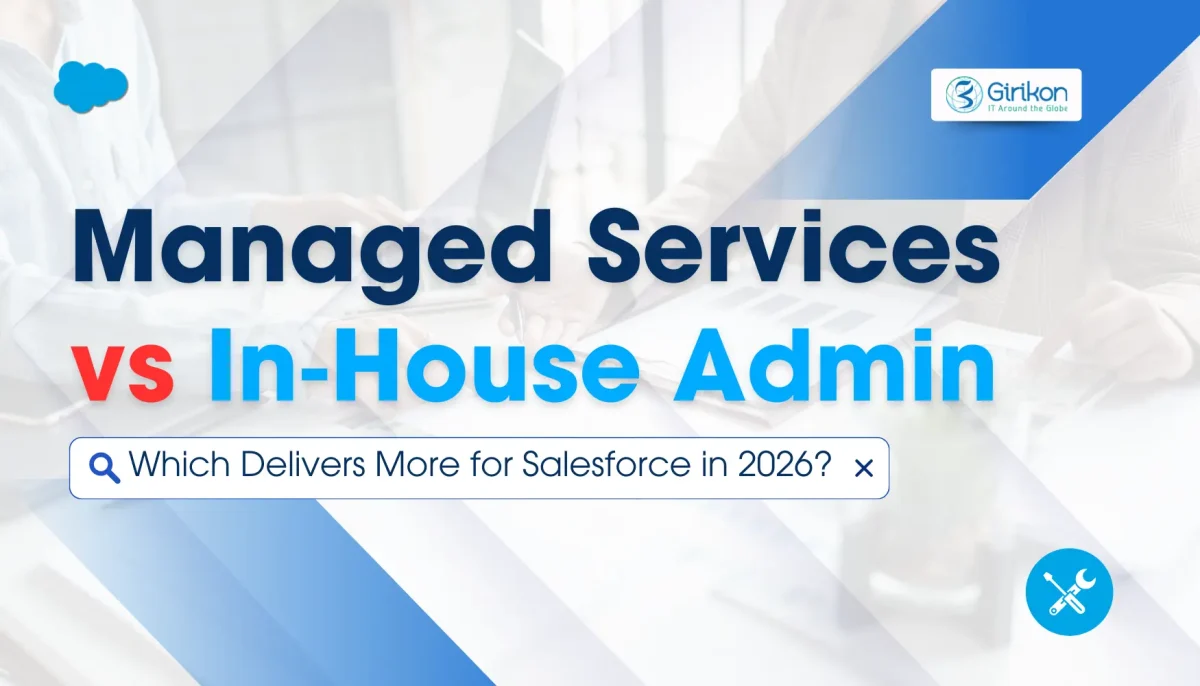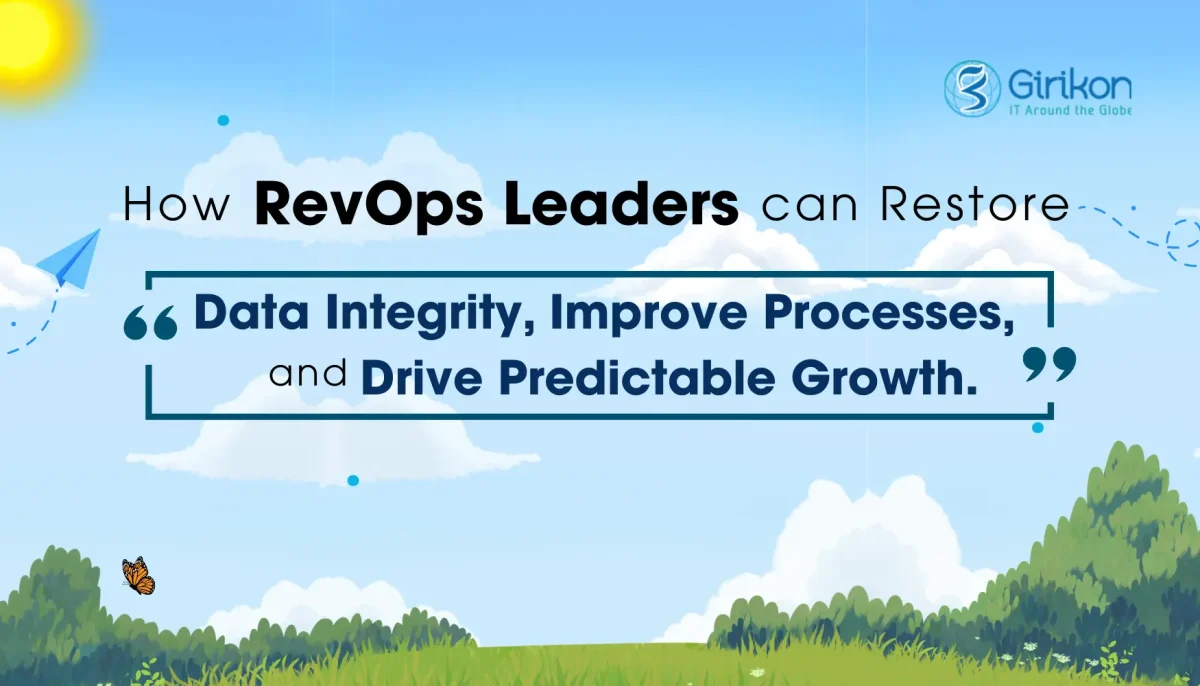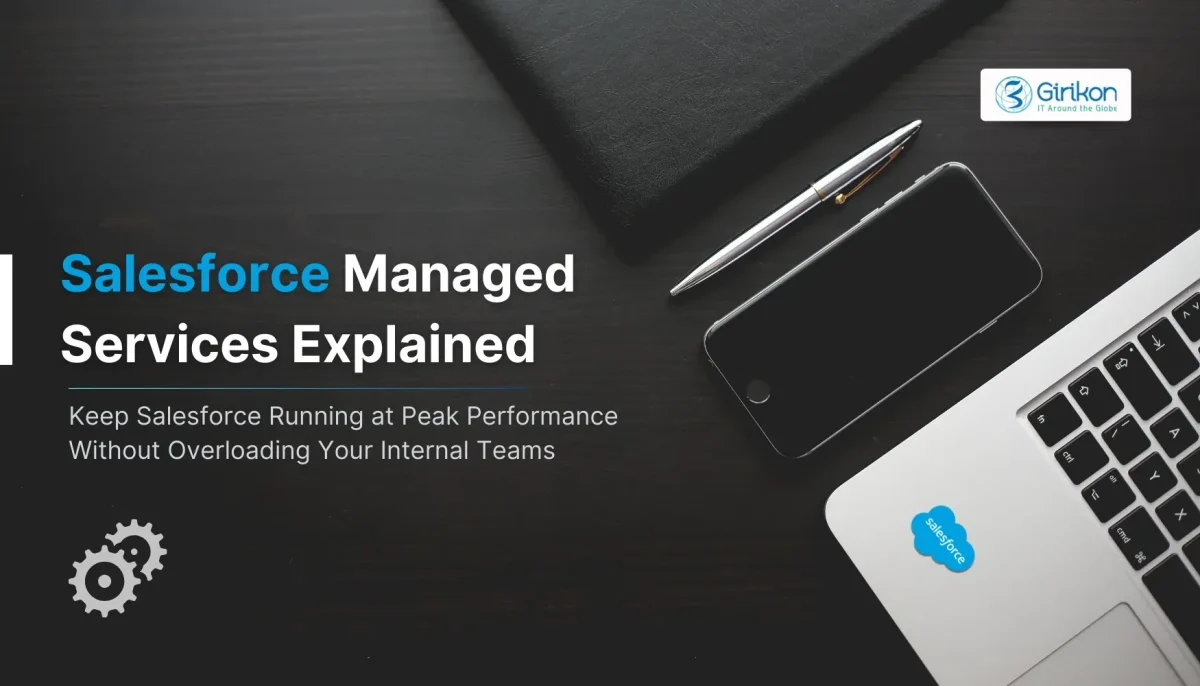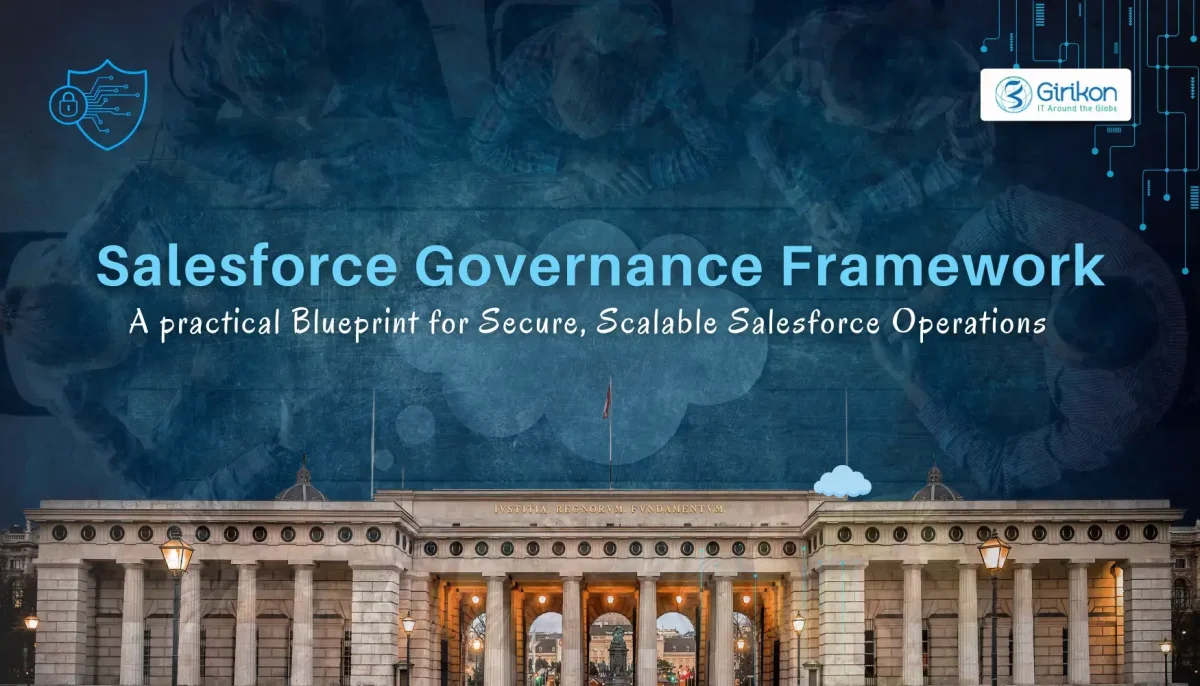In today’s digital-first landscape, small businesses are under constant pressure to provide tailored customer experiences, make prompt decisions, and compete with enterprise-level players — often while handling limited resources. For years, the world’s leading CRM platform i.e. Salesforce has been a reliable choice for SMBs to simplify customer relationship management, automate processes, and augment service delivery. It’s prudent to hire Salesforce Consulting Expert who can guide you through the realm.
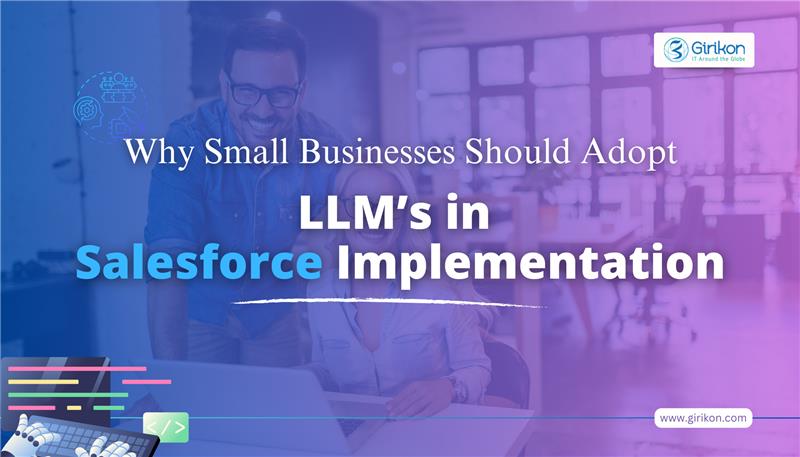
Today, with the rise of Large Language Models such as ChatGPT or Einstein GPT, the CRM landscape is undergoing a transformation. Besides bringing advanced NLP and generative AI capabilities along with contextual automation to the Salesforce CRM ecosystems, unlocking a new level of efficiency and intelligence is required.
For small and mid-sized businesses, this isn’t a good-to-have upgrade, it’s has become a competitive necessity. Let’s understand why SMBs should embrace language models in their Salesforce implementations, how it can affect their processes, and what practical use cases make the investment worthwhile.
The Potential of LLMs for Small Businesses
Advanced AI technologies till now were largely reserved for organizations with significant budgets and dedicated data science expertise. Now, with LLMs rooted in platforms like Salesforce, SMSB’s can harness advanced AI without the need for specialized teams or infrastructure.
At their foundation, LLMs are designed to comprehend and generate human-like language from huge datasets. This translates into capabilities such as:
- Making sense of unstructured data with contextual accuracy.
- Restructuring redundant tasks through commands given in natural language.
- Paving the way for smarter decision-making with analytical insights.
- Enabling stronger communication with customers across different teams.
For SMBs, the result is heightened productivity, streamlined operations, and optimized customer relationships, delivered without the heavy costs tied to traditional AI initiatives.
What are the Advantages of Using LLMs in Salesforce?
Delivering Tailor-made Client Experiences at Scale: Customers today expect quick and tailored interactions—and for SMSB’s lean teams, it can feel daunting to keep up. By integrating LLMs into Salesforce, SMBs can:
- Instantaneously assesses customer preferences, history and behaviors.
- Generate tailored email drafts, chat replies, or service suggestions
- Equip sales reps with appropriate insights for every client touchpoint.
Rather than sending a standard follow-up, an LLM can create a message that directly speaks to a customer’s interests thereby building stronger relationships.
Sales Enablement: In several small businesses, sales teams must juggle multiple responsibilities. This leaves them with limited bandwidth for comprehensive CRM updates or in-depth customer research. LLMs transform the CRM into a smart assistant by:
- Generating meeting summaries, call notes, and opportunity updates by default.
- Suggesting next best action based on the stage of deal and customer signals.
- Drafting contracts, product descriptions and more with reduced manual input.
Sales professionals can spend more time to nurturing relationships and closing deals, while spending less time on routine work.
Service and Support Efficiency: For SMB’S customer support can be a game changer. With Salesforce Service Cloud powered by LLMs, SMBs can offer enterprise-level service without the need for huge support teams:
- Repeatedly drafting accurate responses to customer queries.
- Evaluating tone and context to de-escalate frustrated interactions.
- Generating knowledge articles dynamically while troubleshooting guides.
The outcome is a more sympathetic support for clients, while internal teams benefit from less workloads and enhanced efficiency.
Cost Savings: Every resource matter in a small business. LLMs decrease costs by automating redundant tasks that consume employee time. Some key areas include:
- Gathering data from transcripts directly into Salesforce.
- Briefing and classifying case logs without manual involvement.
- Restructuring reporting with natural language queries
By doing away with manual overhead, SMBs frees up time and investment to put into growth-oriented ingenuities.
Leveling the Playing Field: Large enterprises have conventionally counted on tailor-made AI solutions to remain ahead. With LLMs unified into Salesforce, small businesses can now gain access to the same intellect, without the need to build it from scratch.
For SMBs, this means:
- Delivering customer experiences that compete those of top-notch companies.
- Scale operations efficiently without adding corresponding headcount.
- Speed up innovation by testing and implementing AI-driven processes.
In short, LLMs enable SMSB's with enterprise-grade capabilities, enabling them to contend and thrive in markets once conquered by large players.
Overcoming Challenges in SMB Adoption
While the benefits provided by LLMs are convincing, small businesses may face certain issues when configuring them in Salesforce. Recognizing these trials early while planning accordingly helps ensure a seamless transition.
- Cost Deliberations: For SMSB’s exploring AI, budget is a primary concern. Luckily, Salesforce offers flexible options, and the proficiency gains from LLMs naturally overshadow the upfront investment.
- Change Management: Employees, at times, might be apprehensive of embracing AI-enabled workflows. To simplify the resistance, LLM’s should be positioned as supportive agents instead of replacements.
- Data Privacy: Compliance is crucial as LLMs depend on data to offer contextual insights. The robust compliance framework of Salesforce helps SMBs ensure trust while adopting AI.
- Training and Enablement: Employees must feel comfortable using the features of LLM. Learning tools such as Trailhead offer reachable training to allow teams to quickly adapt.
What is the Future of LLMs for Small Businesses?
The potential of LLMs is just the beginning to reveal. As Salesforce expands generative AI across all the cloud platforms, the opportunities for SMBs will grow suggestively. Some of the evolving possibilities include:
- Voice-enabled CRM: Working with Salesforce through voice commands for quicker and hands-free interactions.
- Hyper-Personalized Marketing: Creating campaigns in real time, tailored to every customer’s exclusive journey.
- AI-enabled Prediction: Fortifying predictive models for precise demand planning and allocation of resources.
- Seamless Integrations: Connecting with routinely used productivity tools to create unified, AI-powered workflows.
Final Words:
Adopting LLM's in Salesforce isn’t just about following the AI trend. It’s more about unlocking the aspects that small businesses require to thrive. With LLMs, SMBs can deliver customer experiences that match enterprise standards, automate mundane tasks, equip teams with intelligent insights, and compete effectively with large enterprises. For small businesses, embracing LLMs in Salesforce today means staying ahead of the curve. To know more about LLM’s and how they are revolutionizing SMB’s, it makes sense to partner with one of the best Salesforce implementation companies.

 +1-480-241-8198
+1-480-241-8198 +44-7428758945
+44-7428758945 +61-1300-332-888
+61-1300-332-888 +91 9811400594
+91 9811400594